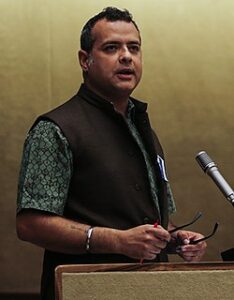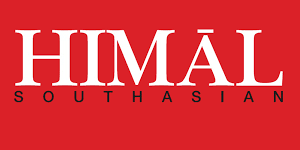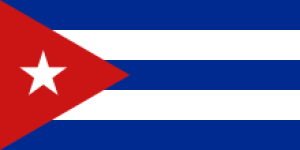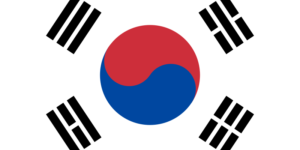Which Government Does The United States Recognize In Venezuela?
No Comments yetOn January 3, 2023, Shaun Tandon of Agence France-Presse asked U.S. State Department spokesperson Ned Price about Venezuela. In late December, the Venezuelan opposition after a fractious debate decided to dissolve the “interim government” led by Juan Guaidó. From 2019 onward, the U.S. government recognized Guaidó as the “interim president of Venezuela.” With the end of Guaidó’s administration, Tandon asked if “the United States still recognize[s] Juan Guaidó as legitimate interim president.”
Price’s answer was that the U.S. government recognizes the “only remaining democratically elected institution in Venezuela today, and that’s the 2015 National Assembly.” It is true that when the U.S. government supported Guaidó as the “interim president” of Venezuela, it did so because of his role as the rotating president in that National Assembly in 2019. Since the presidency of the National Assembly rotates annually, Guaidó should have left the position of “interim president” by the end of 2020. But he did not, going against Article 233 of the Venezuelan Constitution of 1999, which he cited as the basis for his ascension in 2019.
Price said, “The 2015 National Assembly has renewed its mandate.” However, that assembly was dissolved since its term expired and it was replaced—after an election in December 2020—by another National Assembly. The U.S. government called the 2020 election a “political farce.” But when I met the leaders of Venezuela’s two historic opposition parties in Venezuela in 2020—Pedro José Rojas of Acción Democrática (AD) and Juan Carlos Alvarado of Comité de Organización Política Electoral Independiente (COPEI)—they told me that the 2020 election was legitimate and that they just did not know how to overrun the massive wave of Chavista voters. Since the members of the new assembly took their seats, the 2015 assembly has not set foot in the Palacio Federal Legislativo, which houses the National Assembly, near Plaza Bolívar in Caracas.
In essence, then, the U.S. government believes that the real democratic institution in Venezuela is one that has not met in seven years, and one whose political forces decided—against the advice of AD and COPEI—to boycott the 2020 election.
Meanwhile, in early January 2023, Venezuela’s President Nicolás Maduro spoke with veteran journalist Ignacio Ramonet. Maduro told Ramonet that he is “prepared for dialogues at the highest level and with relations of respect.” He hoped that “a halo of light” would reach the office of U.S. President Joe Biden and allow the United States to put its “extremist policy aside.” Not only did Ned Price refuse this olive branch, but he also said that the U.S. approach to “Nicolás Maduro is not changing.” This is an awkward statement since members of Price’s own government went to Caracas in March and June of 2022 to meet with the Maduro administration and talk about the normalization of oil sales and the release of detained U.S. citizens.
Meanwhile, Tandon’s question hangs over the White House.
Author Bio:
This article was produced by Globetrotter.
Vijay Prashad is an Indian historian, editor, and journalist. He is a writing fellow and chief correspondent at Globetrotter. He is an editor of LeftWord Books and the director of Tricontinental: Institute for Social Research. He is a senior non-resident fellow at Chongyang Institute for Financial Studies, Renmin University of China. He has written more than 20 books, including The Darker Nations and The Poorer Nations. His latest books are Struggle Makes Us Human: Learning from Movements for Socialism and (with Noam Chomsky) The Withdrawal: Iraq, Libya, Afghanistan, and the Fragility of U.S. Power>
Source: Globetrotter
You May Also Like
Comments
Leave a Reply








